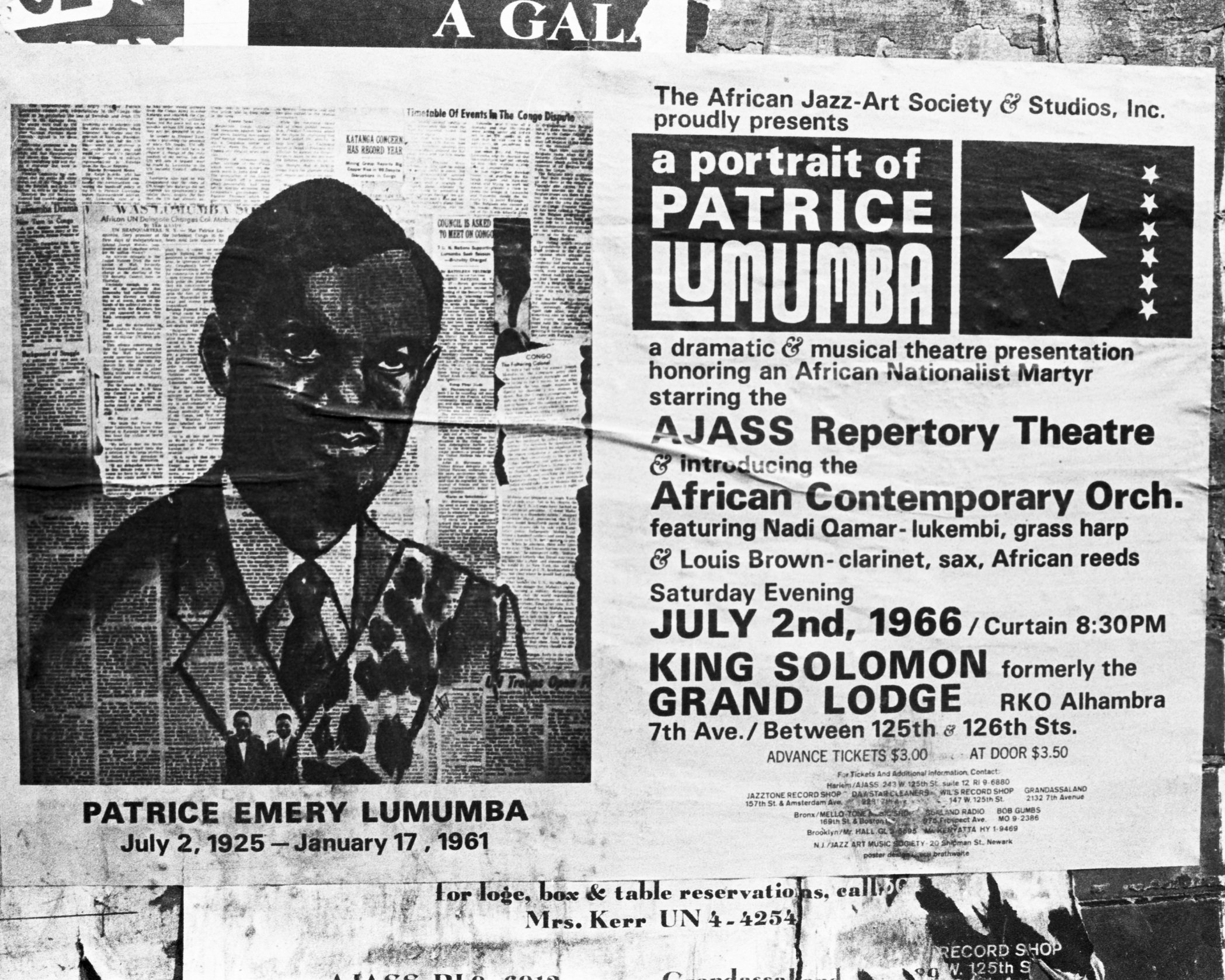
Introduction: Transnational Solidarity
Introduction by Teaching for Change
The Civil Rights Movement in the United States was connected to the international struggle against colonialism. Such well-known African American historians as W. E. B. Du Bois and Carter G. Woodson had long linked U.S. racism and segregation to the colonial system in Africa and other parts of the world.
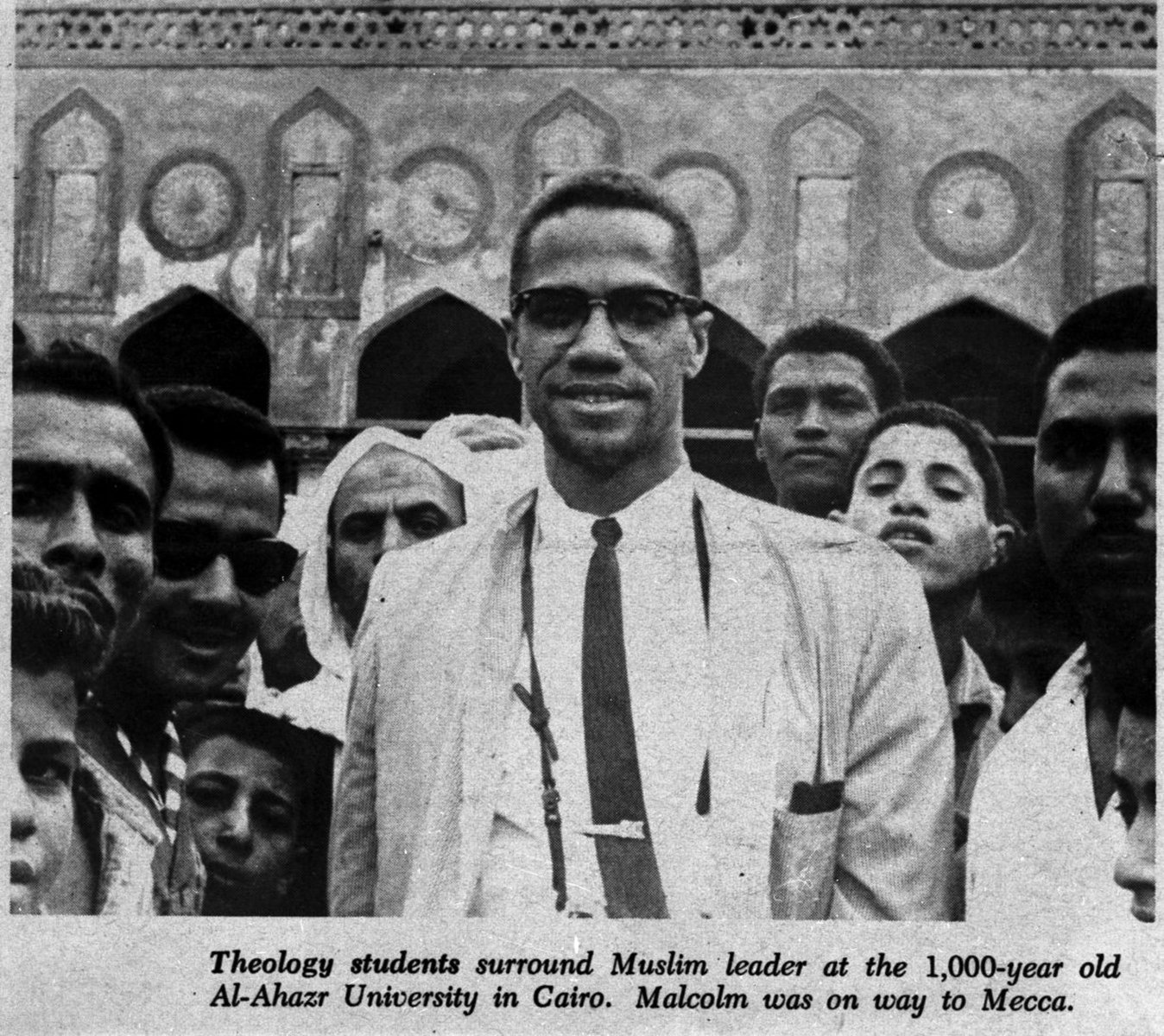
Civil Rights or Human Rights?
Lesson by Andrea McEvoy Spero
Students learn that the goals of the African American Freedom Struggle extended beyond civil rights and were often inspired by the anticolonial struggles of the 20th century. To conceptualize the African American Freedom Struggle as part of a global movement for human rights invites a deeper understanding of the international events of the last century.
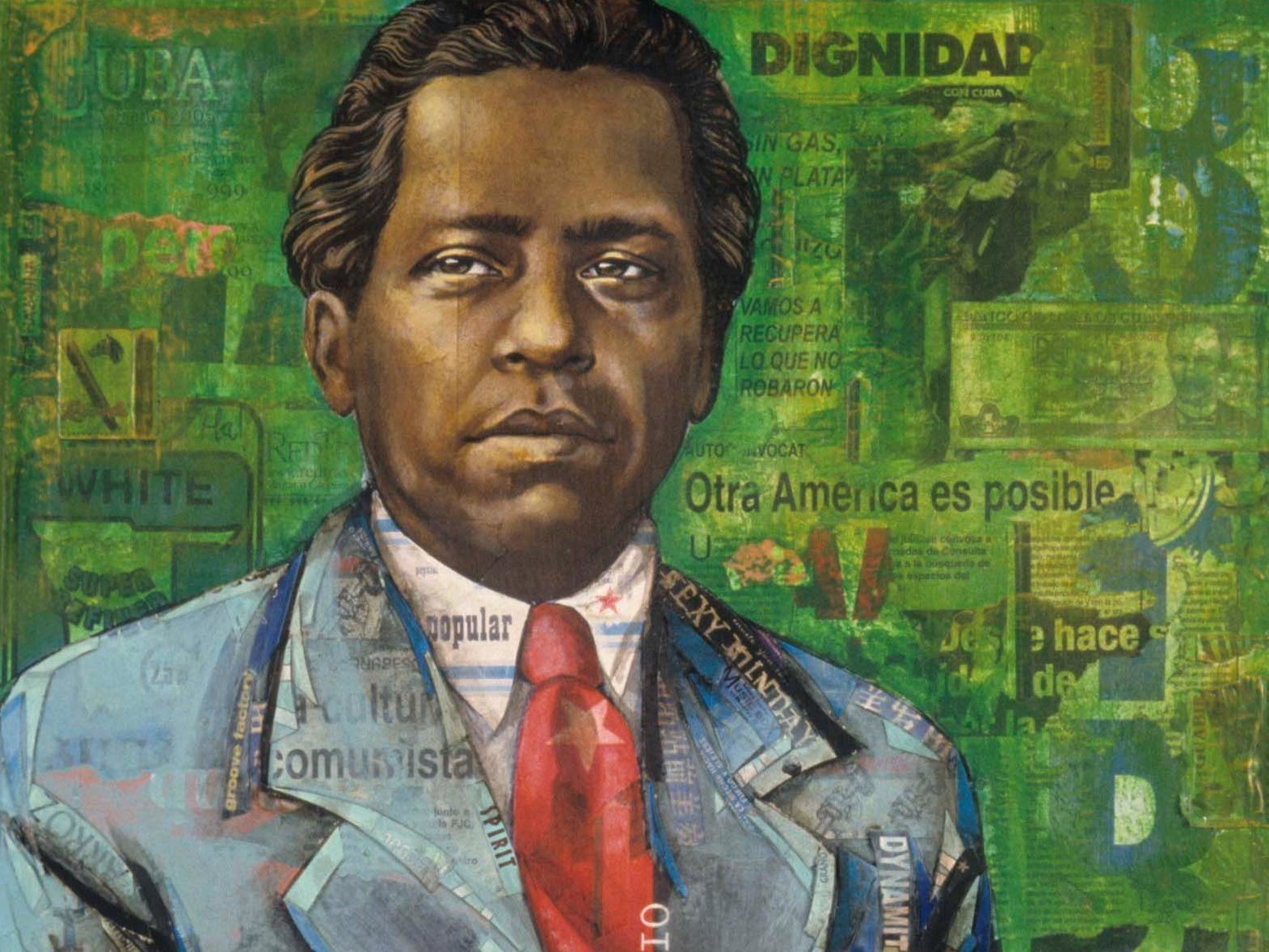
Nicolás Guillén: The Struggle against Two Racisms
Reading by Carmen Gómez García
In this essay, excerpted from a chapter on the history of Cuban social poetry, Gómez García introduces the reader to Guillén’s poetry about racism in the United States. This is an ideal text for classes on poetry, Spanish, 20th-century U.S. history, and Latin American history.

W. E. B. Du Bois to Coretta Scott King: The Untold History of the Movement to Ban the Bomb
Reading by Vincent Intondi
The Civil Rights Movement is often portrayed as purely domestic phenomena unrelated to foreign affairs, but many African Americans combined civil rights with peace, and thus broadening the Black freedom movement and helping define it in terms of global human rights.
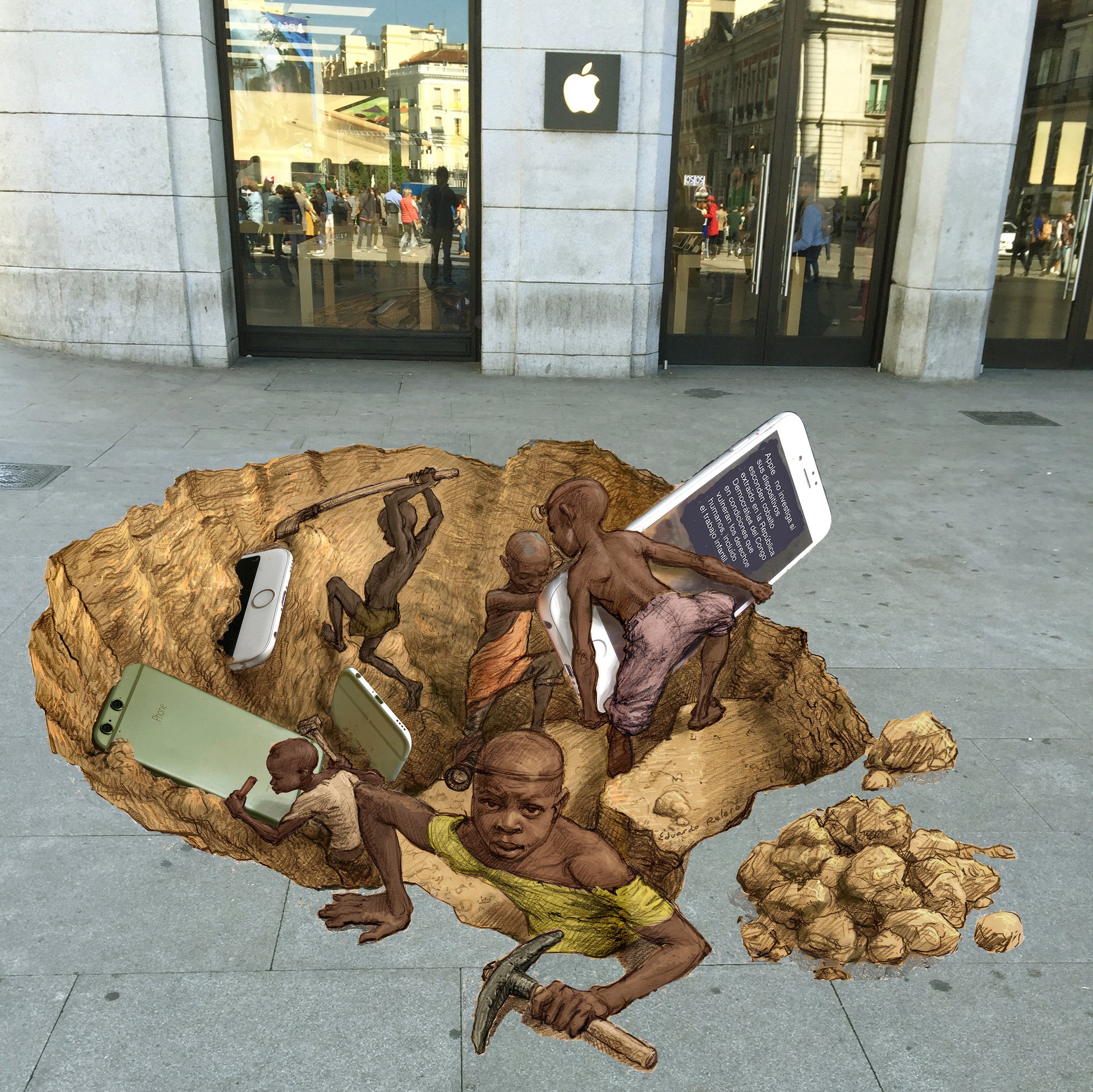
Congo, Coltan, and Cell Phones: A People’s History
Lesson by Alison Kysia
More than 5 million people have been killed in Democratic Republic of the Congo since the late 1990s. Just as the bloodshed of the colonial period was financed by highly lucrative natural resources like rubber, the violence today is likewise fueled by natural resources, including coltan, a mineral required for cell phone production. This role play activity allows students to look back at Congo’s history and see the connections between the brutality of colonialism and the contemporary injustice in Congo.
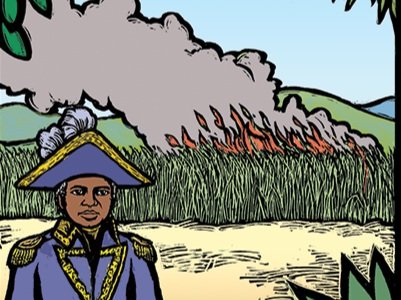
The Haitian Revolution: Central to U.S. History
Reading By Alana D. Murray
For Black people prior to the Civil War, the revolt of enslaved people in Haiti served as a beacon of freedom. These heroic actions of the Haitian revolutionaries resonated well into the 20th century. The events of the Haitian revolution shaped a Pan African identity that influenced the thinking of leaders in the Civil Rights Movement and the Black Power Movement.
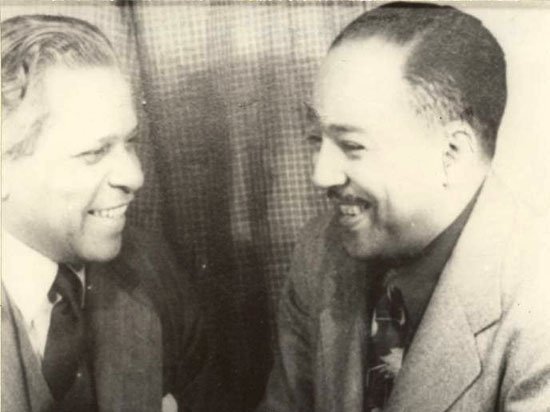
The Influence of Musical Folk Traditions in the Poetry of Langston Hughes and Nicolás Guillén
Lesson by Kathryn Gray
Langston Hughes and Nicolás Guillén were both young men of African descent born in 1902 who wrote poetry concerned with racial and class issues. One was raised in Cuba, the other in the United States, one in Spanish, the other in English and both had parents of mixed racial descent. In this unit, students explore how the two poet friends share a pattern of using musical influence in their poetry.
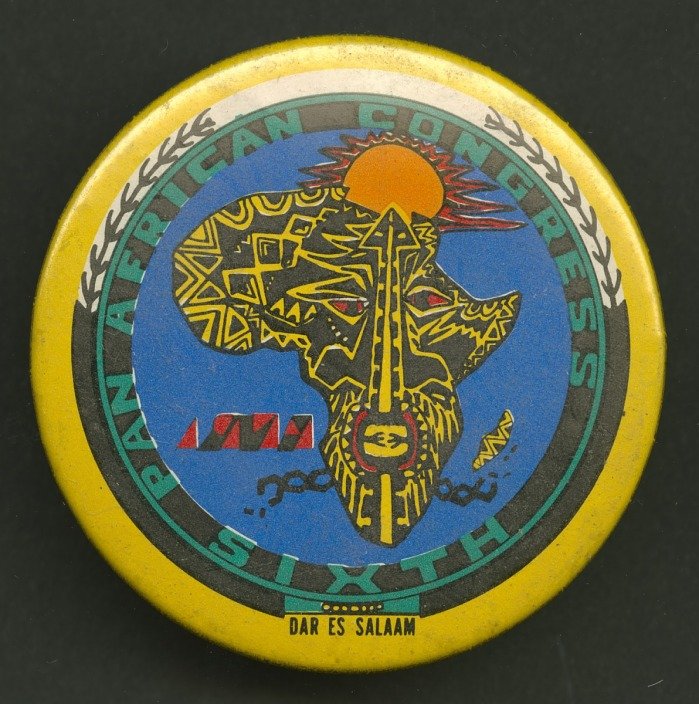
SNCC: International Connections
Reading by SNCC Digital Gateway
Growing up in the 1950s and 1960s, SNCC members were also influenced by the rising tide of liberation movements that followed World War II. As their commitment to the movement increased, they linked their own struggle for civil and human rights at home with anti-colonial struggles in Africa, Asia, and Latin America.
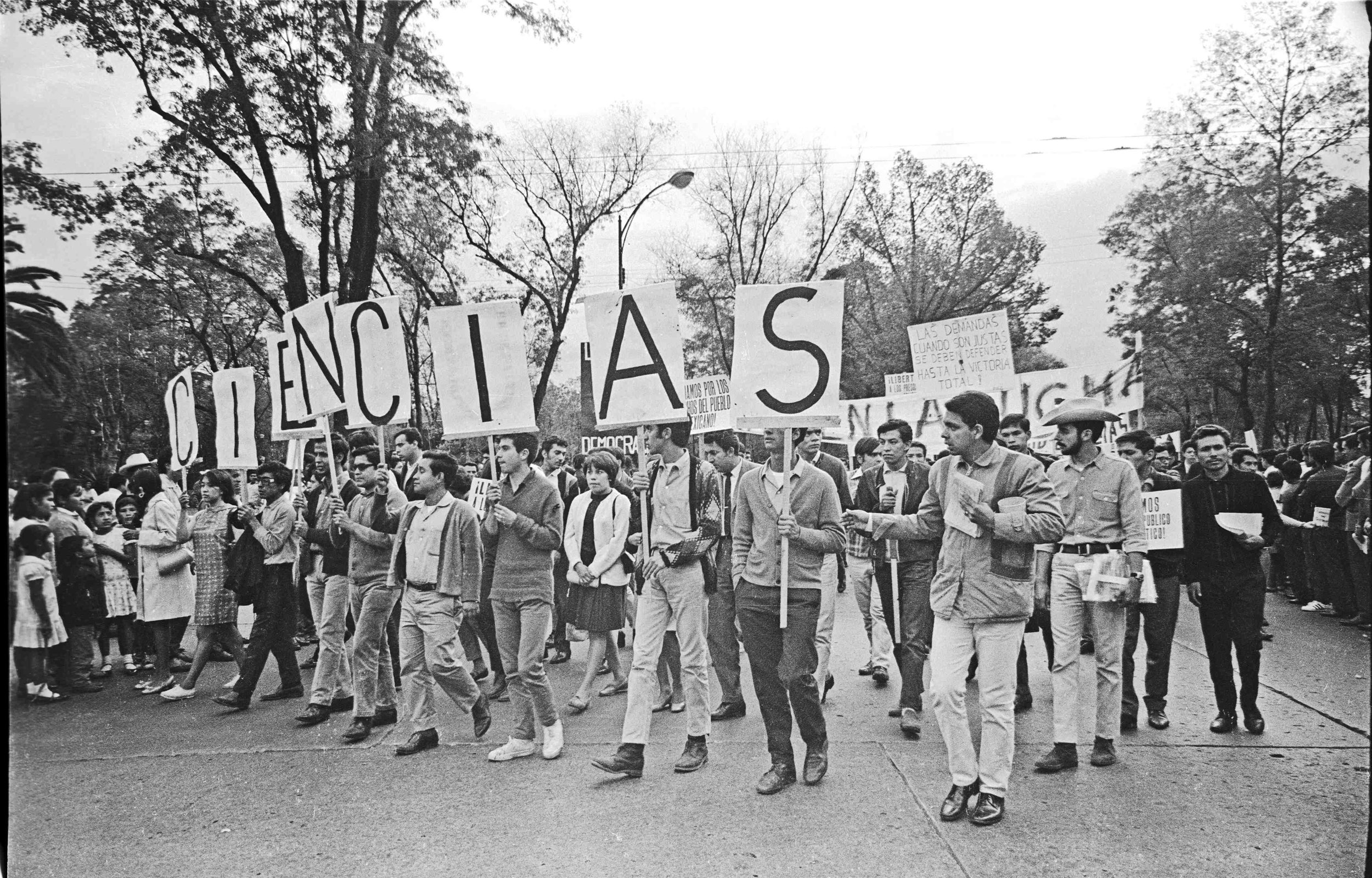
SNCC Memorandum of Solidarity with the Students of Mexico, October 1968
Primary Document by Student Nonviolent Coordinating Committee In 1968, students organized to protest the lack of true democracy in Mexico. The tension began in July, but the climax came on October 2, 1968 — 10 days before the Olympic games were to begin in Mexico City. On this date, the police and army fired on thousands of demonstrators. Hundreds were killed, thousands were beaten and jailed, and the government did its best to sweep the incident under the rug.
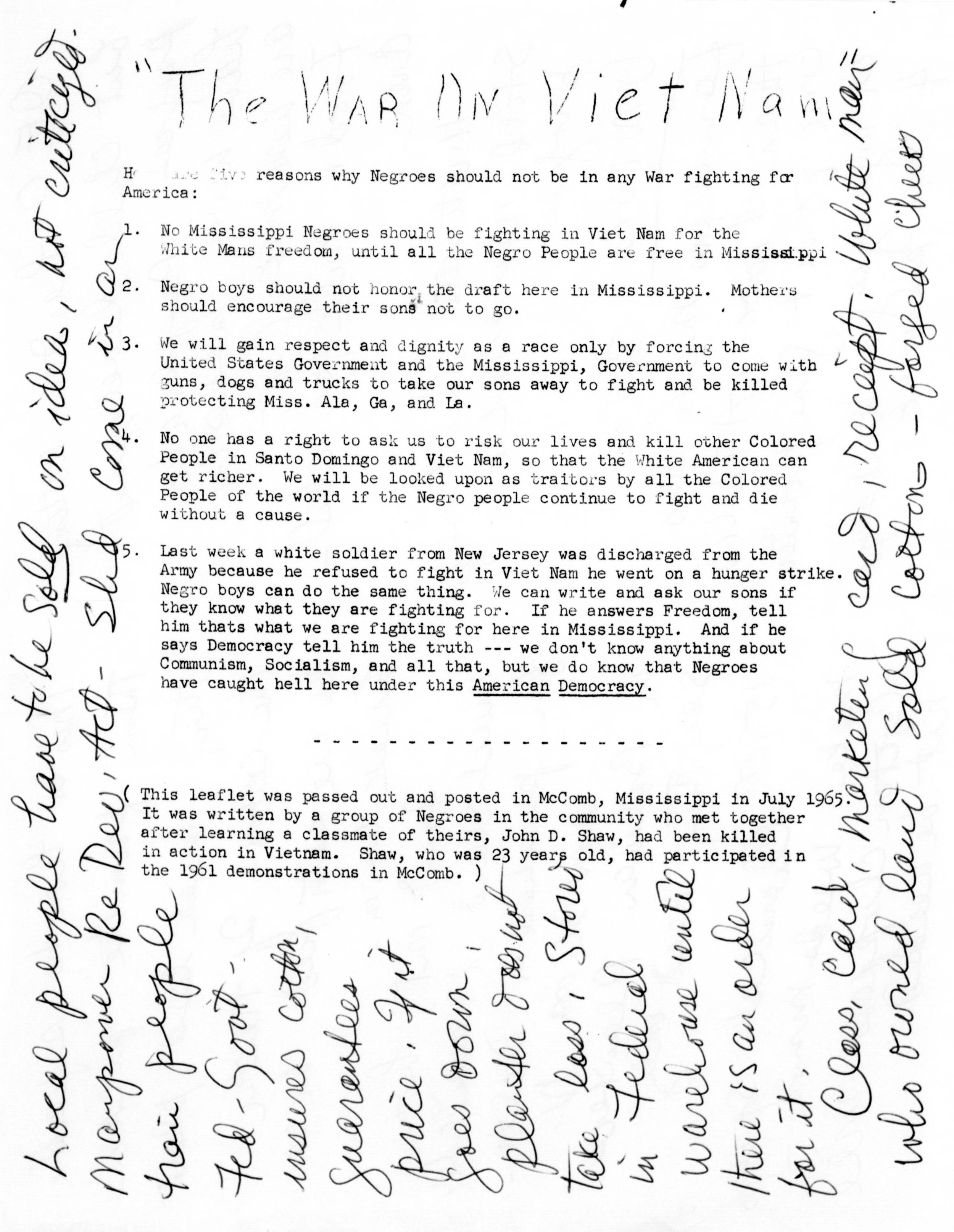
McComb Statement Against the Vietnam War, July 1965
Reading by SNCC Digital Gateway.
In July 1965, a group of young activists in McComb, Mississippi’s Movement learned that John Shaw, one of their former classmates at Burglund High School, was killed in combat in Vietnam. Their statement written in response about the reasons why African Americans should not serve in Vietnam was the first anti-war statement from within the Civil Rights Movement. It paved the way for SNCC to take a stance against the war.
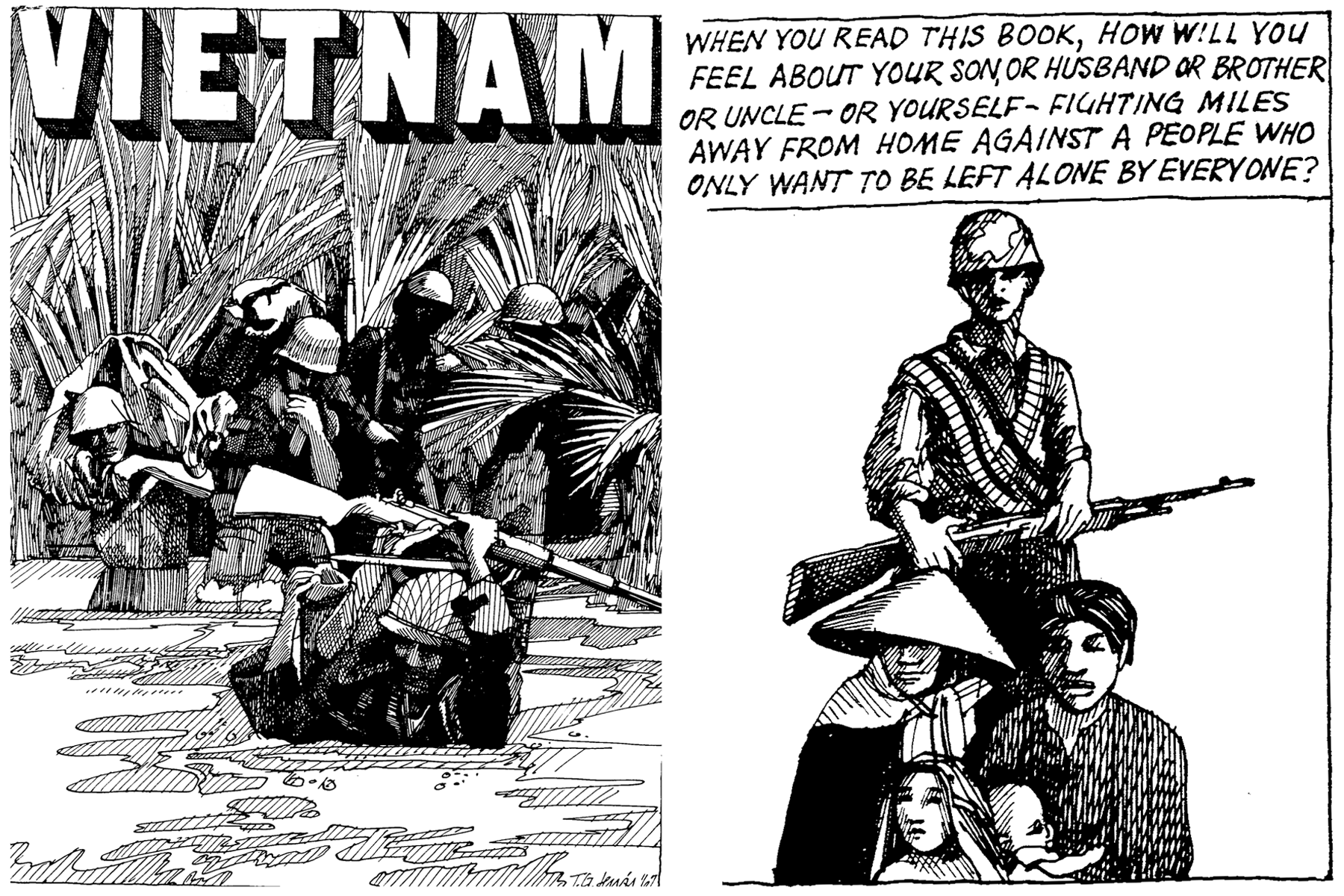
Vietnam: An Anti-War Comic Book
Primary Document by Julian Bond
A history of the Vietnam War and examples of African American opposition to the war, presented in an easy to read comic book format.
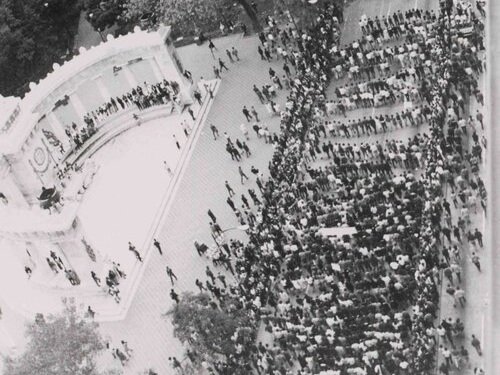
Students Confront the Government: The Massacre at Tlatelolco
Lesson by Resource Center of the Americas
A lesson on the Mexican student movement and the October 1968 massacre of hundreds of students.
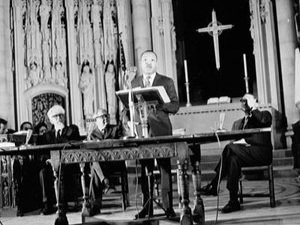
Beyond Vietnam — A Time to Break Silence
Reading by Martin Luther King Jr.
On April 4, 1967, exactly one year before his assassination, Martin Luther King Jr. delivered his first major speech on the war in Vietnam. In this speech he links the escalating U.S. commitment to the war in Vietnam war with its abandonment of the commitment to social justice at home. He calls for a “shift from a ‘thing-oriented’ society to a ‘person-oriented’ society” and for us to “struggle for a new world.”

American Exported Black Nationalism
Reading by Yohuru R. Williams
This essay explores how SNCC and the Black Panther Party contributed to the concept of a worldwide freedom struggle in the late 1960s and how their efforts were received abroad.
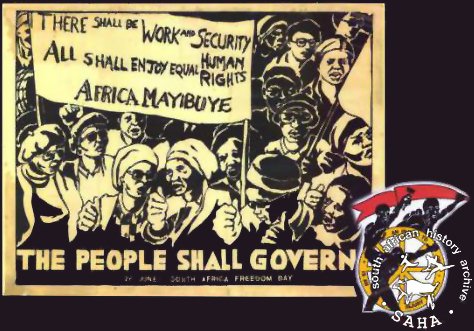
South African Unions Struggle for Justice
Lesson by Bill Bigelow
The South African anti-apartheid movement is often mischaracterized in the U.S. as simply a fight for political rights, culminating in the election of Nelson Mandela as the country’s first freely chosen president. However, Black unions linked their political objectives for an end to racial oppression to their campaigns for higher wages and better working conditions. This lesson invites students to imagine themselves as Black union activists at the height of the anti-apartheid movement in the 1980s and poses them problems that confronted real-life organizers at the time.
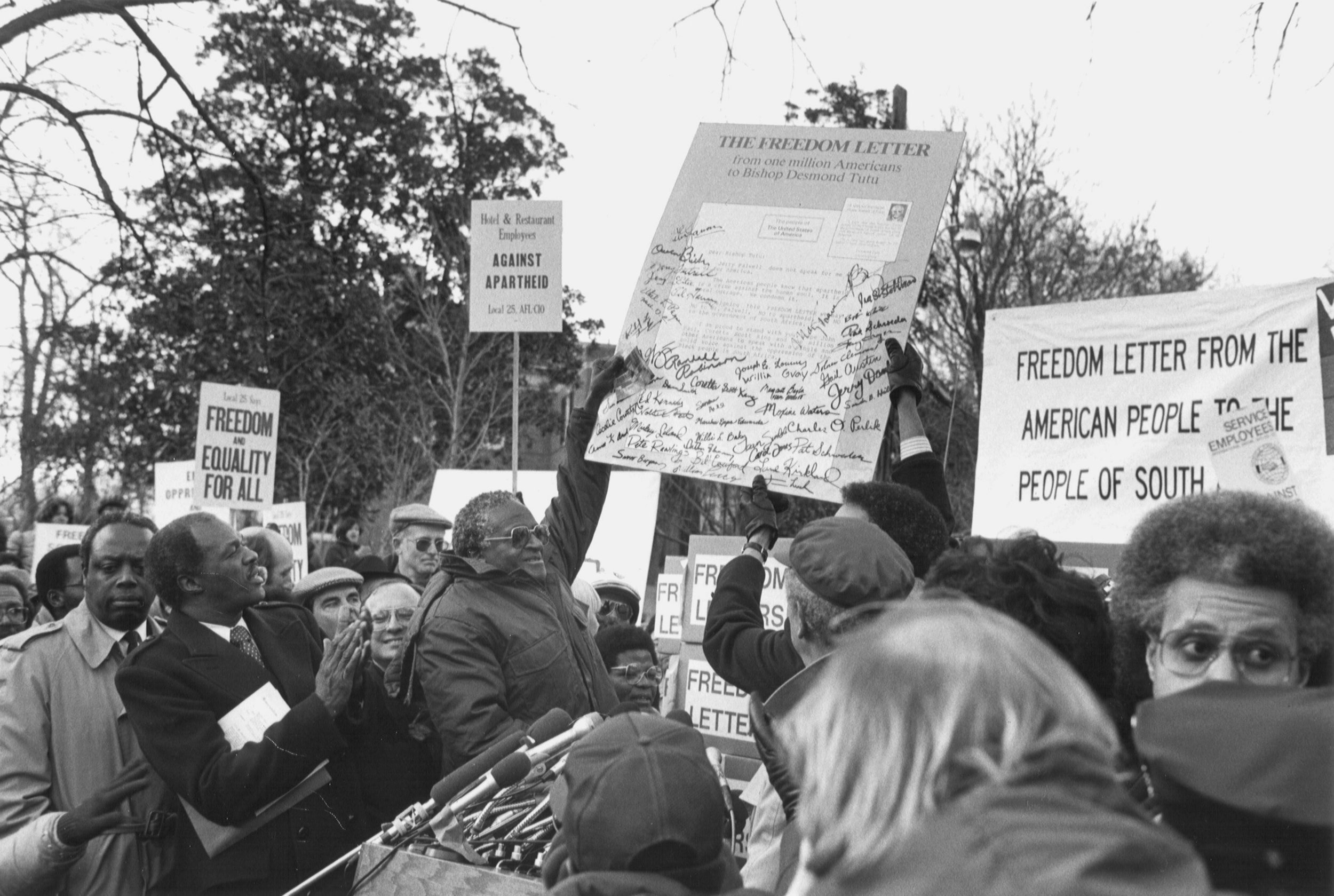
Movers and Movements: Fighting for Social Justice in South Africa
Lesson by Brenda Randolph
A mixer to help students understand that the freedom struggle in South Africa was a collective effort involving multiple strategies in the context of a larger movement.
